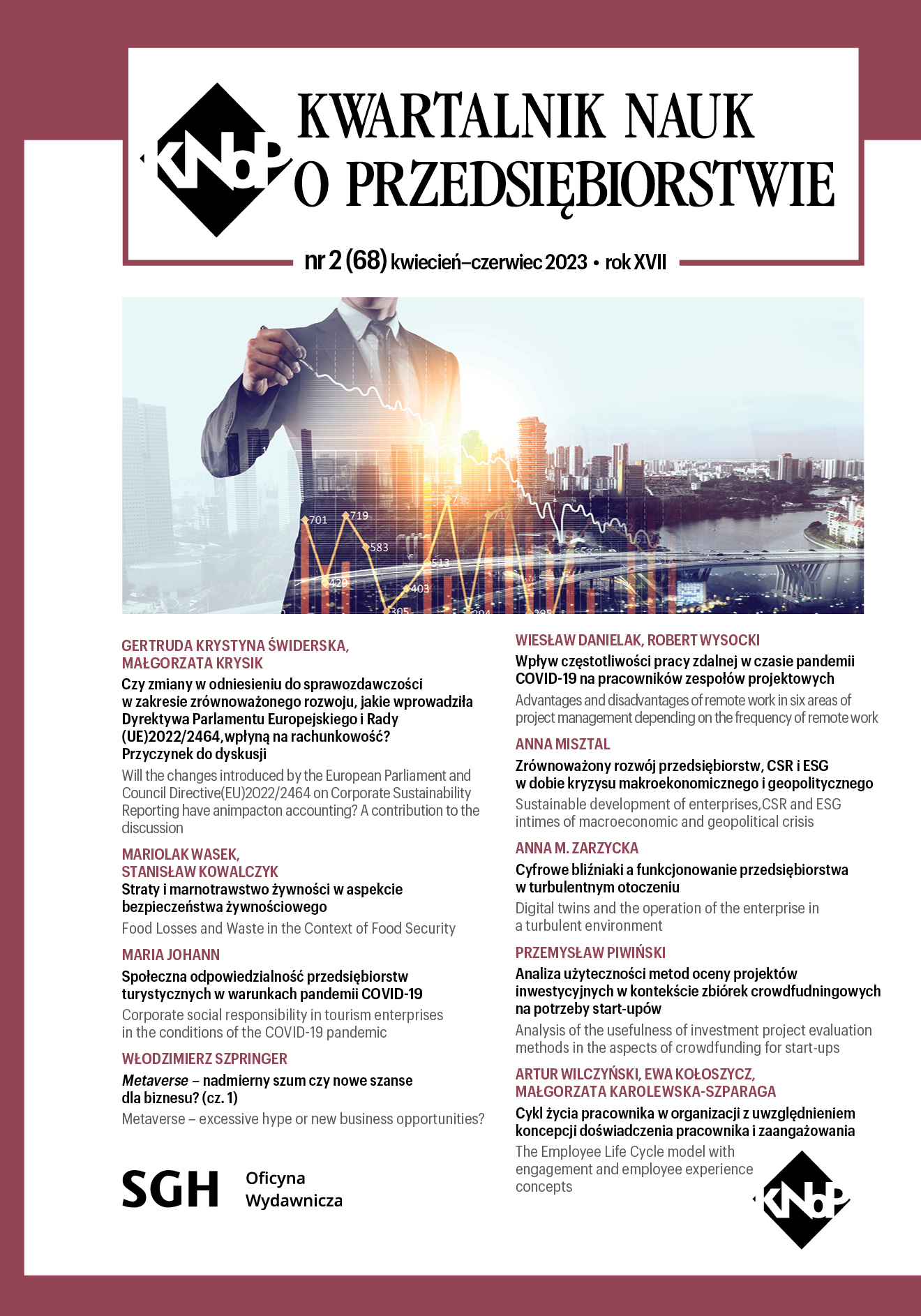Czy zmiany w odniesieniu do sprawozdawczości
w zakresie zrównoważonego rozwoju, jakie wprowadziła Dyrektywa Parlamentu Europejskiego i Rady (UE) 2022/2464, wpłyną
na rachunkowość?
Przyczynek do dyskusji
Will the changes introduced by the European Parliament and Council Directive (EU) 2022/2464 on Corporate Sustainability Reporting have an impact on accounting?
A contribution to the discussion
Author(s): Gertruda Krystyna Świderska, Małgorzata KrysikSubject(s): Accounting - Business Administration, EU-Legislation
Published by: Szkoła Główna Handlowa w Warszawie
Keywords: sustainable development reporting; financial accounting; management accounting; cost accounting; budgeting; investment expenditures; product life cycle costs;
Summary/Abstract: The adoption of the European Parliament and Council Direc- tive (EU) 2022/2464 on sustainable development reporting represents the second step of a revolution that occurred 20 years ago in the field of financial reporting when the International Financial Reporting Standards (IFRS) harmonized market practices worldwide. Corporate Sustainability Reporting is to be carried out in accordance with uni- form sustainable development standards, which will contribute to the disclosure of significant, comparable, and reliable non-financial data. The introduction of uniform reporting standards (European Sustain- ability Reporting Standard, ESRS) and key performance indicators means that there is a need to collect a lot of data that was not previously collected and process it in a way that allows for the proper dis- closure of required information and external verification of reports. The obligation to prepare a sustainable development report will have a significant impact on the scope of work and the accounting tools used by both management and financial accounting. The aim of the article is to initiate a discussion on the changes that should be introduced into accounting, perceiving it as an information system that measures and presents financial and non-financial infor-mation while simultaneously considering the ecological, economic, and social determinants of business activity. The analysis of the scope of the required information resulting from the implementation of Directive 2022/2464 indicates the need to introduce changes both in the data collected and processed in financial accounting and in the expansion or supplementation of tools used in management accounting. Among them, the following deserves attention: building a resource-based cost accounting system that takes into account environmental and social factors, incorporating sustainable development issues into the four existing BSC perspectives (financial, customer, internal processes, learning and growth), detailing the budgeting process towards the identification of environmentally sustainable activities within the specified budgets, strong linking of responsibility accounting with environmental and social goals, and budgeting.
Journal: Kwartalnik Nauk o Przedsiębiorstwie
- Issue Year: 68/2023
- Issue No: 2
- Page Range: 5-22
- Page Count: 18
- Language: Polish

